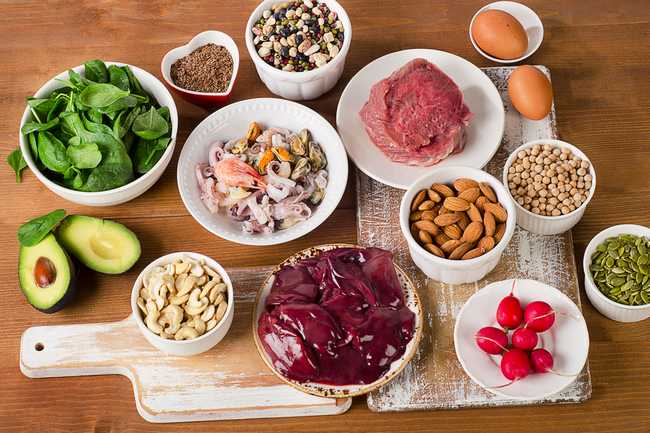Zinc is an essential mineral that the body cannot produce or store. Eating foods or taking supplements helps increase this mineral in the body. So what foods are beneficial and rich in zinc? Let’s find out together from this article.
In general, people get zinc through their daily diet. The maximum amount that the body receives should not exceed 40 milligrams per day. The appropriate amount for each gender and age group is as follows:
- Infants under 2 years of age should receive 2-3 milligrams per day.
- Children aged 6-8 years should receive 4 milligrams per day.
- Children aged 9-12 years should receive 5 milligrams per day.
- Children aged 13-15 years, if male, should receive 8 milligrams per day and females should receive 7 milligrams per day.
- Children aged 16-18 years, if male, should receive 9 milligrams per day and females should receive 7 milligrams per day.
- Adult women should get 12 milligrams per day.
- Adult males should get 15 milligrams per day.
- Pregnant and lactating women should get about 2 mg and 1 mg more zinc than normal, respectively.

Benefits of Zinc
Zinc is a mineral that plays a role in many body processes, including DNA and protein synthesis, immune system function, wound repair, metabolism, cell development and growth, and even taste and smell.
Zinc is also believed to help treat other health problems, such as zinc deficiency in patients with severe diarrhea, conditions that make it difficult for the intestines to absorb nutrients, liver cirrhosis, chronic alcoholism, symptoms after surgery or prolonged feeding through a feeding tube, diseases that impair zinc absorption, Wilson’s disease, acne, retinal degeneration, anorexia or anorexia, attention deficit hyperactivity disorder, depression, โปรโมชั่น ufabet etc.
Zinc-rich foods
Many people may not know that there are many types of foods that are rich in the mineral zinc, which are easily available and affordable, such as:
- Seafood such as oysters, mussels, crabs, shrimp or lobster, deep-sea fish such as sardines, which can be consumed in canned form, and salmon, etc.
- Liver, meat such as pork or beef, and poultry such as chicken or turkey.
- Certain vegetables, especially mushrooms, kale, asparagus, cabbage, and potatoes.
- Nuts and seeds such as black beans, kidney beans, chickpeas, pumpkin seeds, cashew nuts, etc.
- Grains or grain products, whether wheat, oats, quinoa, brown rice, cereals or whole grain breads are all good.
- Eggs and dairy products such as yogurt and various types of cheese.
However, consuming zinc in excess can be harmful to health. It is mostly caused by taking supplements rather than eating directly from food. The side effects that may occur from consuming too much zinc include nausea, vomiting, stomachache, diarrhea, flu-like symptoms, decreased HDL cholesterol, altered taste perception, lack of other minerals, especially copper , or more frequent infections than usual, etc.
Therefore, if you want to eat food or products that contain zinc to treat your illness, you should always consult a specialist doctor or nutritionist first, especially children, the elderly, and pregnant women. Also, those who experience any abnormalities after eating the above foods should also see a doctor.